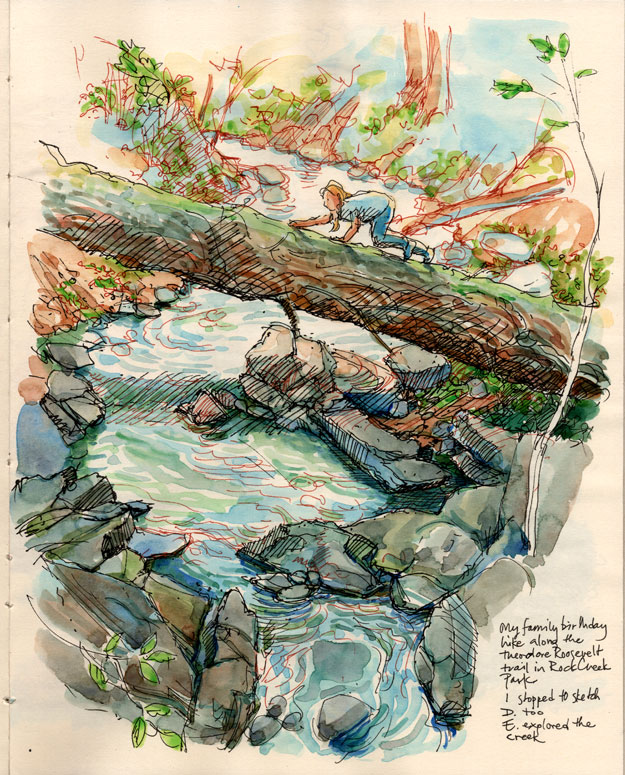Today winter officially packed its bags and departed, and spring took the throne. It ought to come as no surprise, because we have seen it coming for weeks in the swelling tips of branches, the green points pushing up through the earth, the increase in morning birdsong that disregards Daylight Savings Time. Nevertheless every year it astonishes.
Much poetry and prose has been written in praise of spring, but if you have not yet stumbled across Louis J. Halle’s Spring in Washington, let this be the year. Beginning in the mid-1940s, Halle (1911-1988) worked in Washington, DC for about ten years at the U.S. State Department. Although Halle was a citydweller with a theoretically brief commute and could have dozed until practically the last minute, instead he had the habit of rising before dawn, hopping on his bicycle, and heading out for a ten or twelve mile exploration of DC’s wild green pockets and fringes before heading to the office.
No doctor ever prescribed a view of the open world for me, though it was the tonic I needed, rather than something to take in a glass before meals.
In 1947 he published Spring in Washington, an account of his wanderings. With wisdom, humor, an artist’s eye and a poet’s quill (well, in his case, a typewriter) he shared his observations and discoveries throughout the approach, unfolding, and departure of one expanded spring: January to June, 1947.
To snatch the passing moment and examine it for signs of eternity is the noblest of occupations. It is Olympian. Therefore I undertook to be monitor of the Washington seasons, when the government was not looking. Though it was only for my own good, that is how the poorest of us may benefit the world. A more ambitious man might seek to improve the President of the United States.
Each year I drag this book out and read aloud passages to my family. As I leaf through it now, searching for representative quotes, it’s difficult not to reproduce the book in entirety.
The muskrat swims and raises its young in the woodland stream beneath Connecticut Avenue, never knowing of the crowded buses and taxis that swarm overhead… Roaches Run is a marshy lagoon trapped between the National Airport, on one side, and the railway tracks on the other. Ducks and gulls and herons have remained faithful to it, despite low-roaring airplanes and smoke-breathing locomotives. They are accustomed to these dragons and these pterodactyls, regarding them not.
Halle moved on (his field was actually foreign policy), along the way publishing 22 books, eventually retiring to Switzerland. Plenty of hiking opportunites THERE. He made a visit to DC in 1988, to help launch a new edition of this book, the rights to which he had long ago turned over to the Audubon Naturalist Society (where his book can be obtained). While here he went birding and biking in some of the same old wild green places, which, remarkably (thanks in part to folks like himself), still survive for a venturesome bureaucrat’s early morning ramble.
In early March I look at the apparently lifeless skeletons of the elm trees on the Ellipse and say to myself that in two weeks they will be flowering, as the trees have flowered here for a hundred thousand years. In the middle of April I say that in another ten days the city will be full of singing wood thrushes, though there is none here yet. I know all this will be, but it seems to me so miraculous that I cannot take it for granted.
A few months later he made his own final migration to the great Beyond. Even if he had done nothing else on earth, this jewel of a book that resurfaces each spring, endlessly amusing, sensitive, and wise—an everlasting source of inspiration—would suffice. Happy Spring, Louis Halle.
(This sketch is from a family ramble through Rock Creek Park, mere minutes from our utterly urban home.)

